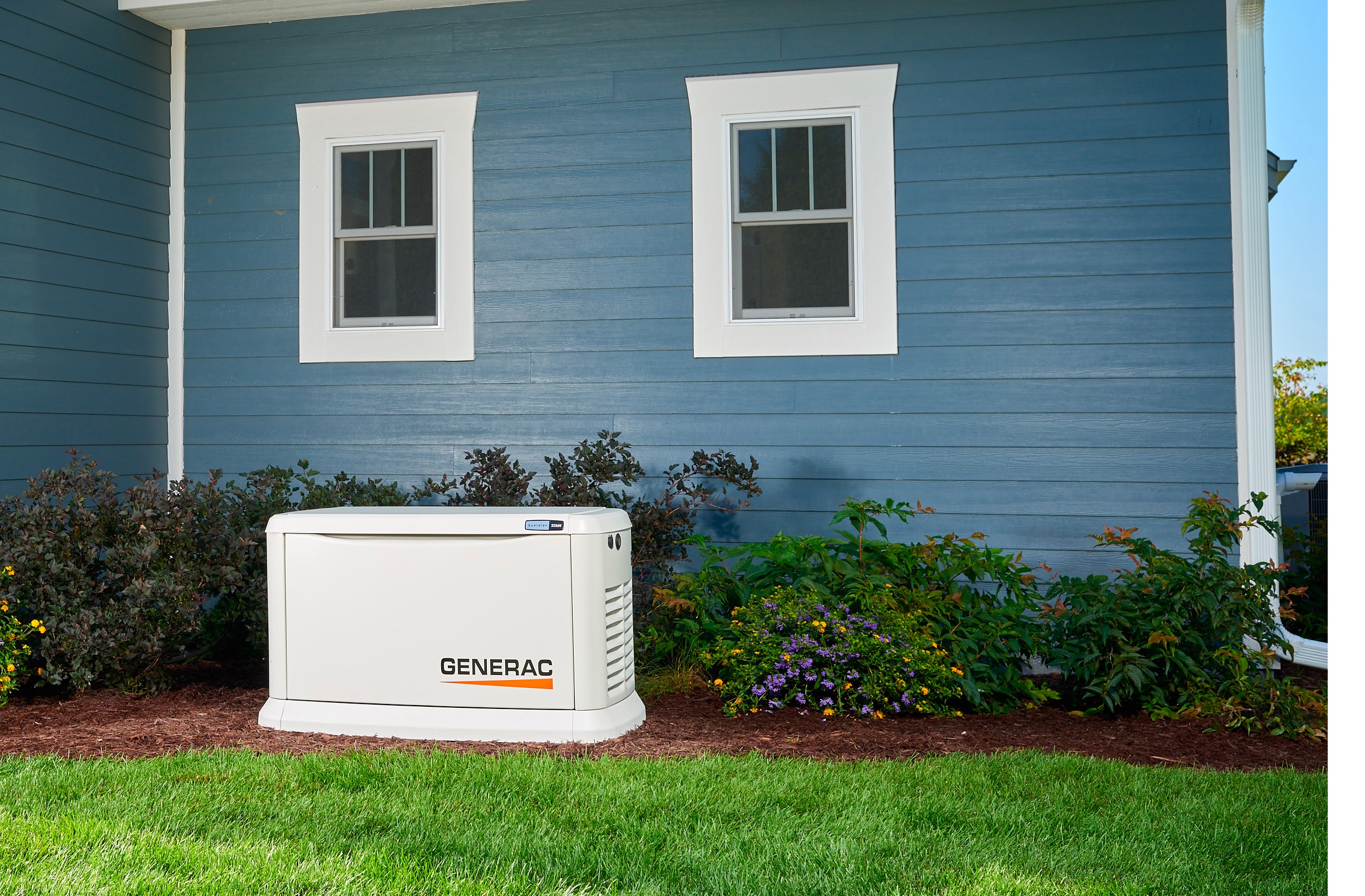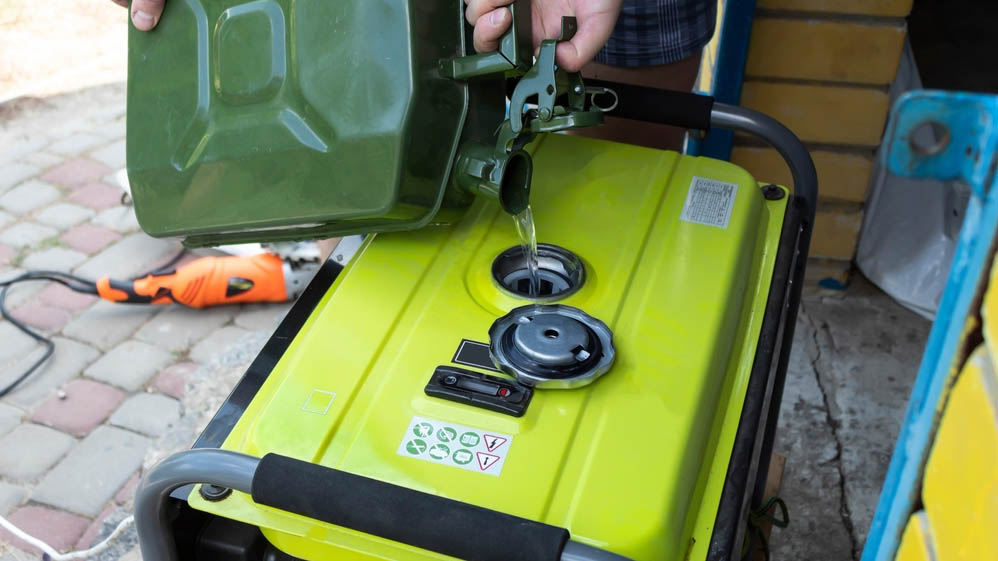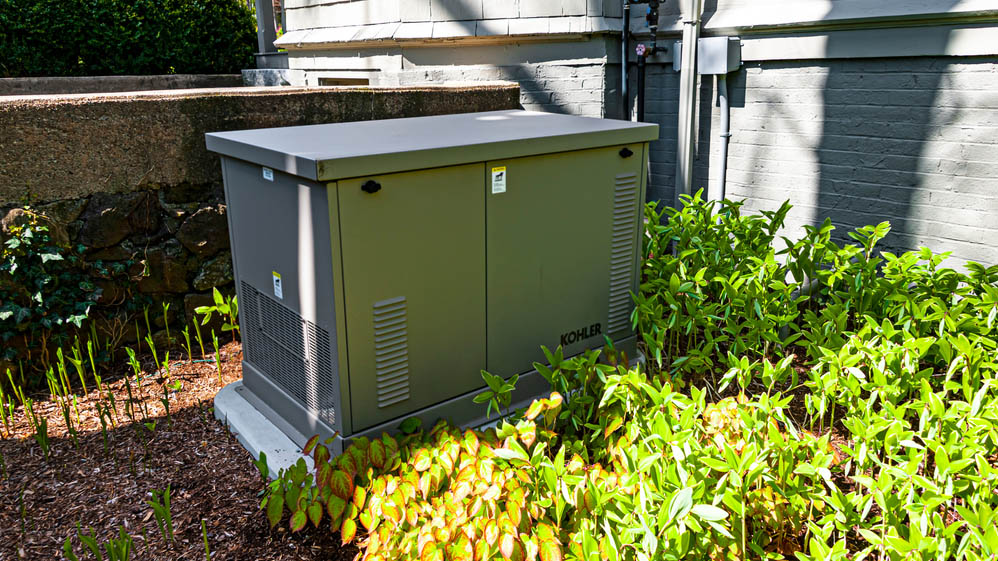Should you get a home generator? Here’s the pros and cons
Thinking about buying a whole house generator? Here’s what you need to know

As the weather becomes more extreme — hotter summers, colder winters, and more violent storms — the chances that you'll lose power to your home are increasing. Considering how dependent we are on electricity to keep our food fresh, our houses heated and cooled, and even to work, it's no surprise that sales of home generators has been increasing steadily over the past few years.
However, there's lots to consider before you purchase a whole house generator. This guide will explain how generators work, how much they cost, and other pros and cons of getting a home generator installed.
And if you want to maintain a warm house this winter, here's how to save money on your heating bills.
What is a home generator?
A whole house generator, also known as a home generator, backup generator or a standby generator, essentially acts as a backup supply of electricity should the power go out. If there’s a power outage, the generator will register this, and automatically supply an alternative source of electricity to power your home.
The majority of whole house generators run on fuel, such as natural gas or liquid propane. This fuel powers an engine, which works with an alternator to generate electricity. That electricity is then supplied to your home should your power cut out. In the meantime, the generator sits outside on standby in a weatherproof container a short distance from your property.

Portable generators exist which are smaller, cheaper and, as the name suggests, portable compared to larger and permanently installed home generators. These don’t supply as much power, but some can still be connected to your home’s circuit breaker from outside as an alternative solution. Bear in mind, these don’t offer as much convenience because you have to manually hook them up when you need them, and they’re known to be noisy too. These require fuel to run, much like whole house generators and should only ever be used outside because generators produce the poison gas carbon monoxide.
Battery backups are also gaining popularity; these can be small devices that can power just a few appliances, or a large power bank that can supply energy to your whole home. However, unlike gas-powered generators, battery backups will only last as long as there's a charge in the battery itself, and can't be replenished until the power comes back on, or if they're connected to solar panels.
Sign up to get the BEST of Tom's Guide direct to your inbox.
Get instant access to breaking news, the hottest reviews, great deals and helpful tips.
Home or standby generators are the more reliable option in terms of supplying electricity to your whole home and these are what we will focus on.
What are the pros of a whole house generator?

1. Reliable — A whole house generator offers a reliable and constant (if you're hooked up to a gas line) supply of electricity should your area be prone to power outages. It provides peace of mind knowing that even if the power goes out, you can continue as you were. Plus, these run 24/7, 7 days a week, so you can rest assured you’re always covered. This can be especially crucial if you lose power during a storm — a generator can keep your sump pumps working, helping prevent your basement from flooding.
2. Convenient to use — Whole house generators will automatically step in, supplying electricity in milliseconds when necessary, so you will barely notice the transference. It will also switch itself off once power returns and go back into standby mode, ready for the next outage.
3. It works when you’re not at home — You can go to work knowing everything will be taken care of at home. Your food will stay chilled and your lights will be on when you return. Your security systems will keep running if there’s a power outage while you’re on vacation as well.
4. Adds value to your home — It may be expensive, but a home generator will add value to your home once it’s installed.
What are the cons of a whole house generator?

1. Expensive — Whole house generators come at a cost. Prices start from $2,000, but most cost around $3,000 - $5,000, depending on the brand. Generally, the more it costs, the more power it can supply, so only pay for what you need. You will also need to consider the installation expense and the necessary fuel to power it.
2. Use may be sporadic — These are a backup resource at the end of the day, which means you may end up installing it and barely ever using it. On the other hand, it might be one of your best investments. The use is entirely circumstance.
3. Takes up space in your yard — These are quite bulky systems, with some measuring up to 50 inches in length. These need to be situated a safe distance from any windows and doors as well; up to 5 feet away is recommended, so make sure you have the appropriate space to accommodate it before you invest. Portable generators should be more than 20 feet away from your home according to the CDC, with the exhaust facing away from your property.
4. You may need to store fuel — Fuel is necessary to power both whole house and portable generators, so you need to be prepared to store it a safe distance from your home if you're not using a gas line.
5. It can be noisy — Generators unfortunately aren’t silent — portable generators, in particular, make quite a bit of noise. Whole house generators aren’t as bad, however, some states have laws on the maximum noise which can be emitted from a home generator, so be sure to check this.
6. It will need occasional maintenance — While they sound like the ultimate convenience, home generators will still need occasional maintenance. They should be serviced every six months or at least annually depending on use. This involves changing the oil as well as the filters and checking the batteries. Some models conduct self-diagnosis tests to keep on top of things, which can help.
Should you buy a whole house generator?

There appears to be more negatives than positives going from the above, however, whether you should or shouldn’t buy a whole house generator ultimately depends on your circumstances. If you suffer from frequent power outages, a home generator could make your life a lot easier. After all, electricity is a crucial aspect of everyday life; without it, the refrigerator will stop running, the tv is a no-go — not to mention it’s lights out for the night.
Having said that, whole house generators are not a cheap solution — not only do they cost a fair bit, but there's the extra expense of getting one installed in your yard. Consider the likely use you will get from such a system, and then weigh this up with the drawbacks to get your answer.

Katie Mortram used to be a Homes Editor for Tom's Guide, where she oversaw everything from kitchen appliances to gardening tools, as well as smart home tech. Specializing in providing expert advice for cleaning and home manintenance, she now works as Household Advice Editor for Good Housekeeping.
